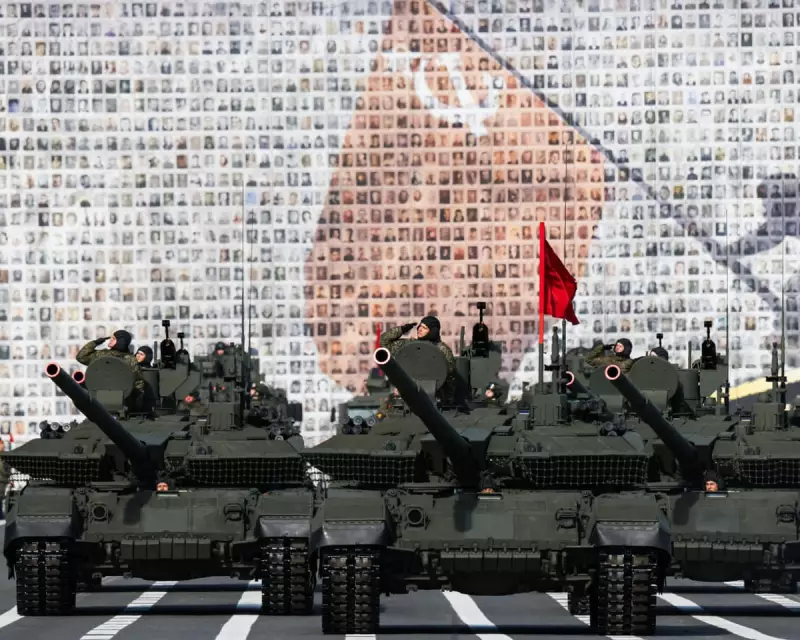
The Hidden Weakness in Russia's War Economy
A critical shortage of mechanical lubricants could severely hamper Moscow's ability to maintain its tank fleet in Ukraine, according to new research from American civil society group Dekleptocracy. While Russian tanks recently paraded through St Petersburg, experts warn that behind the military spectacle lies a vulnerable supply chain that Western sanctions could exploit.
Targeting Russia's Chemical Dependencies
Dekleptocracy, which specialises in researching Russia's war economy, has identified several obscure but potentially devastating sanctions targets that policymakers have largely overlooked. The group's president, Kristofer Harrison - a former State Department Russia expert - described these targets as "weedy and specific" compared to the microchips and oil companies that typically attract government attention.
The research highlights that chemicals essential for producing military-grade lubricants and tyres represent a particular vulnerability for Moscow. "A lubricant shortage would seriously damage Russia's war machine," the group stated in its latest report, emphasising that these components are both difficult to replace and essential for fielding operational tanks.
Since the full-scale invasion began, nearly all global manufacturers of chemical additives for mechanical lubricants have ceased sales to Russia, creating widespread shortages that have affected both military and civilian vehicles. Only a handful of companies worldwide produce these specialised chemicals.
The Chinese Connection and Sanctions Gap
Dekleptocracy's investigation revealed that Chinese company Xinxiang Richful now supplies up to eight million kilograms of these critical chemicals to Russia annually, filling a significant portion of the gap left by Western withdrawals. The company recently established an office in Virginia, potentially bringing it within reach of US sanctions enforcement.
Tom Keatinge, director of the finance and security centre at the Royal United Services Institute (RUSI), described Dekleptocracy's findings as "valuable work" demonstrating that Russia remains vulnerable to targeted sanctions. "For so long as Russia is successfully procuring the components it needs for its military, and for so long as Russia is successfully selling its oil, the environment remains target-rich," he observed.
The report also identified Russia's limited domestic capacity to produce vulcanisation accelerants and other substances required for military-grade tyres as another critical weakness. Moscow has recognised these chemical shortcomings, launching an initiative earlier this year to produce hundreds of essential chemicals domestically.
This comes as US Secretary of State Marco Rubio noted at a recent G7 meeting that most major sanction options have been exhausted, stating "there's not a lot left to sanction from our part." However, Keatinge countered that effective sanctions implementation requires both identifying new targets and enforcing existing measures, particularly against companies continuing to purchase Russian oil despite sanctions on producers Rosneft and Lukoil imposed in October.
Dekleptocracy forms part of a broader civil society effort - including Ukrainian groups Razom We Stand and B4Ukraine, alongside the Center for Advanced Defense Studies - that scours trade data to identify economic vulnerabilities in Russia's war machine. Their work continues to reveal targets that conventional policymaking often misses.





